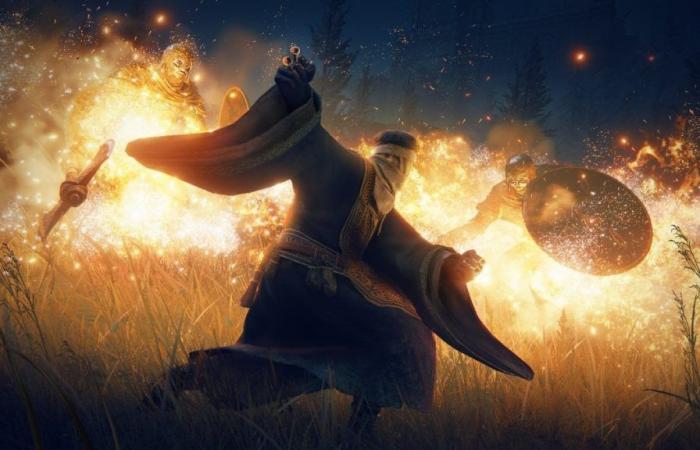
Likability is fundamental in determining the success or otherwise of a person, a product or a work of art. Think of poor Van Gogh, who obtained posthumous recognition thanks to the contents of the letters sent to his brother Theo, made public by his sister-in-law. Now he is the most popular painter in the world, but when he was still breathing, very few appreciated him, gruff and grumpy as he was. In the world of video games exactly the same thing happens and on multiple levels. It proves it to us Elden Ring: Shadow of the Erdtree, which is forgiven many flaws which in other games, I’m not saying they would have been sinking, but at least seen as problematic.
The eyes of faith
Let’s take the user interface, not really functional (to put it mildly), either the fluidity issue on PC. Here, a game whose uncertain fluidity would make sense to criticize, because it requires extreme precision in the execution of offensive and defensive moves, does not create much debate, where elsewhere the same has been complained about for games in which having 30 or 60 Fps little or nothing changes.
Also the beloved difficulty is becoming a problem for somebecause by dint of raising the bar you end up exceeding that limit which is considered acceptable even by many players who perhaps had few problems with the basic game, especially if small mistakes are resorted to to increase the level of challenge, which end up generating great frustration.
Flow is flow, after all, and you have to consider it somehow even if you are FromSoftware and even if your players are highly motivated, otherwise you end up making them spend €40 on an expansion that they end up hating, because they can’t move forward. Consider that we are not talking about casual players, but about people who have advanced far enough in Elden Ring to kill a very tough boss to access the contents of the expansion.
The problem with FromSoftware’s games is that they are often viewed through the eyes of the faithful, so to speak. Many consider them to be initiation tests, almost a post-modern expression of tribal virility, so much so that one of the strengths of these games is their extremely social nature, that is, they encourage the diffusion of videos and images that create a real mythology linked to the experience offered, external to the game itself, with heroes like LetMeSoloHer, priests like Miyazaki and many bards who all play the same ballad.
With this I don’t mean to say that it’s bad or good, I’m certainly not reviewing it, but only that at a certain point reading the user comments on Steam appears to be a really obvious discord with the general discourse that has accompanied Shadow of the Erdtree in recent months , until the moment of exit. As mentioned, the question I ask myself is very simple: if FromSoftware hadn’t been a “nice” software house, there would have been all this goodwill towards it even when faced with certain problems? Or are we talking about minor problems to which we can turn a blind eye?
This is an editorial written by a member of the editorial team and is not necessarily representative of the editorial line of Multiplayer.it.





